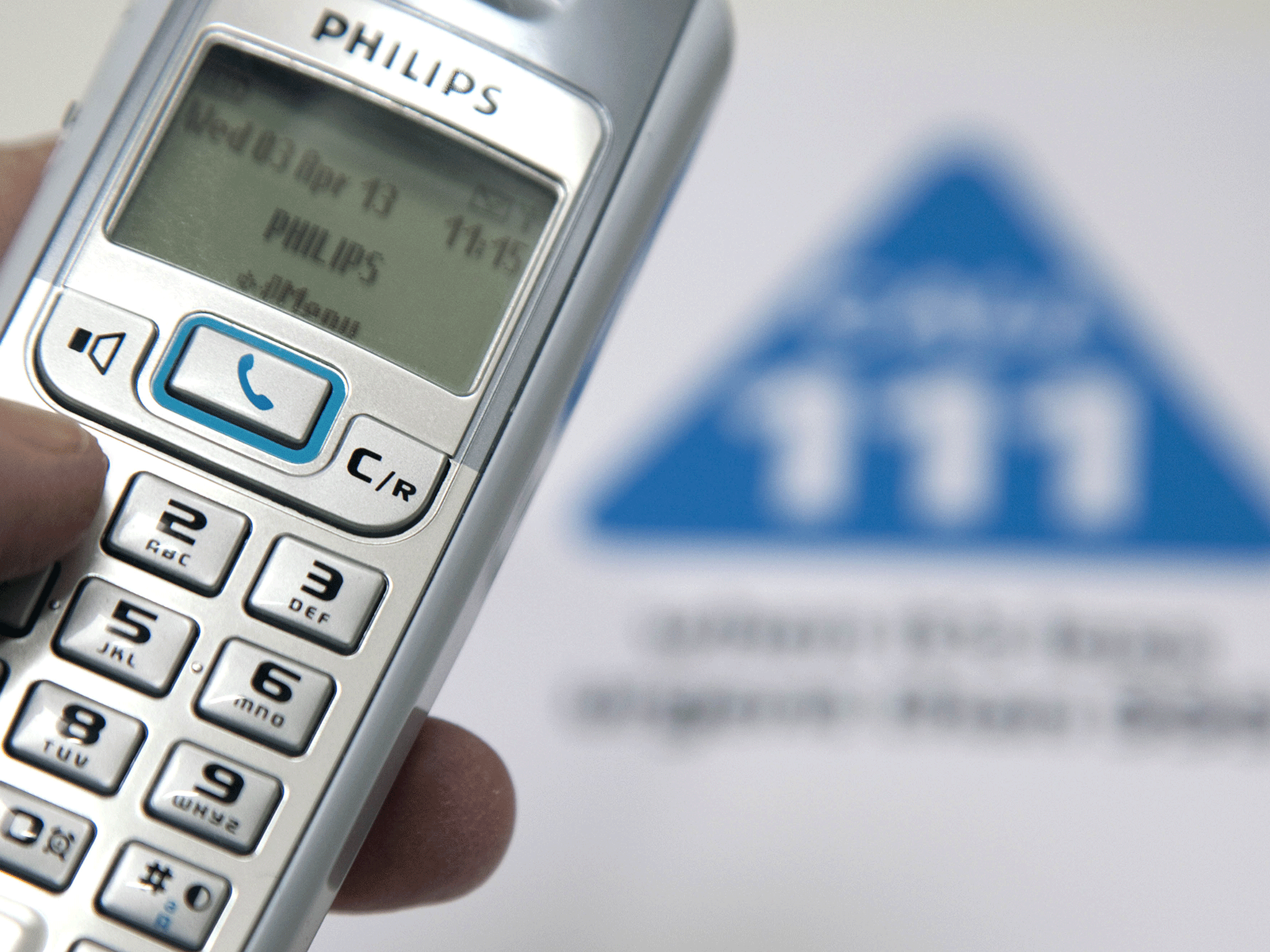Investigation launched into claims NHS 111 helpline 'put suicidal callers on hold until they hung up'
Department of Health says allegations made by undercover reporter are 'clearly completely unacceptable' if true

The NHS has launched an “urgent” investigation into allegations that suicidal patients calling 111 are being left on hold until they hang up.
Staff at the health service’s non-emergency hotline were allegedly found asleep on duty, claimed a reporter for The Sun who went undercover at the NHS 111 call centre at St Charles Hospital in Ladbroke Grove, west London.
The newspaper reported an alleged conversation with one of the call handlers about how they dealt with suicidal patients.
According to The Sun, a handler told the undercover reporter: “After a while you can’t talk to them no more, it just gets awkward.”
“She was crying and I was asking her stuff like, 'do you not really want to talk', she was like, 'no'... I put her on mute,” the reporter was allegedly told.
A Department of Health spokesman described the claims as “clearly completely unacceptable” if found to be true.
“The NHS is now urgently investigating and if any wrongdoing whatsoever is found, including criminal actions, we will want to see the police and relevant NHS regulators alerted as necessary,” they said.

The St Charles Hospital centre provides 24-hour support for callers from 11 boroughs in north, west and central London.
The 111 helpline, offered to direct patients with urgent conditions to the best form of care, is described by the NHS as “fast, easy and free.”
“Call 111 and speak to a highly trained adviser, supported by healthcare professionals. They will ask you a series of questions to assess your symptoms and immediately direct you to the best medical care for you,” says the NHS website.
The newspaper said it found call handlers asleep at their desks or describing themselves on “busy” on the internal computer system to avoid new calls and new patients.
Technical glitches reportedly ended with one handler hanging up on at least three patients, including one with heart palpitations.
Workers were told to tell callers they were experiencing technical failures when they may have been struggling to work the system, according to The Sun.
The report also claimed that managers changed the undercover reporter's time sheets to show he had done more training hours than he had.
Simon Douglass, medical director of the London Central and West Unscheduled Care Collaborative, which runs the centre, said: “I would like to reassure patients and the communities that patient safety is, and always will be, our highest priority.
We take any allegations extremely seriously and have launched an urgent investigation. The matters leading to the allegations appear to have arisen earlier this year when the undercover reporter participated in training.
“All issues relating to staff conduct are extremely important to us, particularly in relation to patient safety. We strictly enforce our policies for managing staff conduct at all times including whenever we receive reports of inappropriate conduct or behaviour.
Last February the NHS 111 service was investigated over allegations that 17-year-olds without the right medical training were answering calls.
And it is the same service where a call handler failed to recognise that one-year-old William Mead, who died following a string of NHS failings, had sepsis caused by an underlying chest infection.
Health Secretary Jeremy Hunt said the service would undergo "fundamental" reform in the wake of the report into the Mead's death.
An inquiry into the effectiveness of NHS 111 launched after the incident found that a trained doctor or nurse would have been more likely to successfully identify that the child was suffering from sepsis.
The report said that might have saved the boy’s life because the tool used by the untrained call handlers was not adequate to detect the condition.
“We are working closely with the NHS clinical commissioning groups to ensure that any concerns are thoroughly investigated and we have appointed a senior investigating officer to oversee this process,” said Mr Douglass.
“The Sun did not share their evidence prior to publication and we will be asking them to disclose this to us to assist our investigation.
“As an NHS service provider we are committed to delivering high-quality services.”
Additional reporting from Press Association
Bookmark popover
Removed from bookmarks